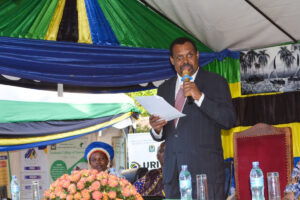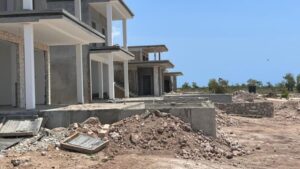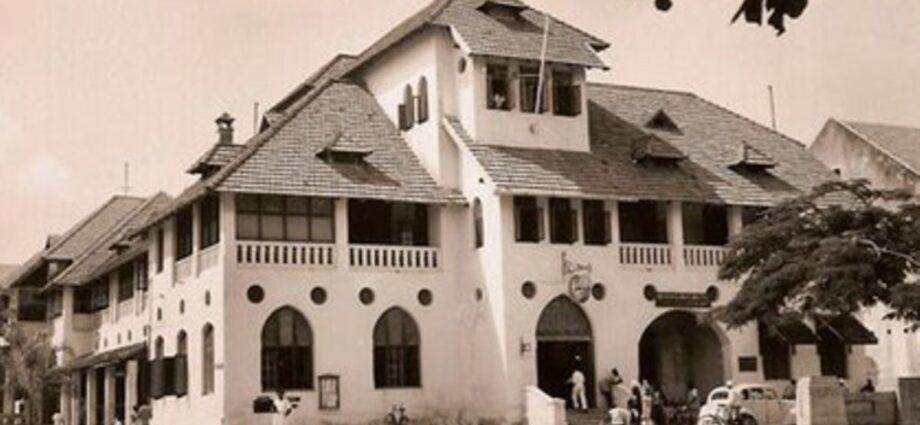Mwalimu had planned to retire in 1980 but those plans were put aside by the war with Uganda, where, he once said, those who wanted him to stay argued retiring that year would have amounted to “abandoning” the country at a very difficult period. However the process of experimenting with the politics and the economy was well underway.
On the regional stage, Uganda soon went to war which lasted for nearly five years after the disputed elections in 1980. Those who fought and eventually took power in Kampala went on to seriously alter regional politics down the line, especially in Rwanda and Zaire. Kenya too was shaken after then President Daniel Arap Moi had survived a coup attempt in 1982. Some commentators have argued that that experience changed him for the worse for the rest of his presidency. In the south, Namibia and South Africa were yet to be liberated.
On the western borders however, there was still trouble. Zaire strongman, Mobutu Sese Seko had accused Tanzania of harbouring rebels bent on overthrowing his government, something Tanzania denied. Rwanda and Burundi continued to be embroiled in never ending cycles of ethnic tensions and violence which would have severe consequences for the country and the region in the 1990s.
The curtain was formally brought down on the first attempt at regional integration in 1984 after the project collapsed in 1977.
On the domestic scene, in 1983, the ruling party, CCM, discussed the introduction of presidential term limits, which culminated in a constitutional amendment in 1984 which limited presidents to maximum, two five-year terms in office. Human rights too became part of the constitution through the same amendments. In 1984, the Union was tested by political and constitutional developments in Zanzibar which resulted in then Zanzibar’s president Aboud Jumbe Mwinyi to be forced out of office and into unplanned early retirement.
By the time Mwalimu was on his way out in 1985, his critics had painted a picture of a disastrous outcome to the country due to his economic policies. Mwalimu had a different take: “I was also more impatient 18 years ago. I set out to build a socialist and self-reliant Tanzania. You ask me, is Tanzania socialist and self-reliant? The answer is no. But I never expected it in 18 years, We were a backward, totally illiterate country…We have virtually wiped out illiteracy. I remember our youth used to ask me at independence, when will we achieve our goals? Perhaps in 30 years, I used to answer.” That goal has remained elusive way beyond the thirty years Mwalimu thought it would take for the country to achieve its goals.
Back in 1983, the country had attempted to address the severe shortage of basic goods through some measures like the economic sabotage legislation which brought temporary relief on the availability of basic goods. Like other attempts of the 1970s such as “Operesheni maduka”, it did not prevent the continued severe economic headwinds the country faced.
President Ali Hassan Mwinyi, who had succeeded Mwalimu as president, went far with economic experiments by negotiating a deal with the IMF and allowed the private sector more roles in the economic sector of the country. He was making efforts towards liberalising the economy. A journalist at the time observed that “in a cautious, low key, pragmatic way, the President has already set Tanzania on the path of reform.” However, there were those who thought that financial improprieties were on the rise under the new regime as a by-product of the economic experiments underway.
The 1980s were a split screen in the country’s history as the political leadership continued to claim the country was pursuing the economic goals of Ujamaa na Kujitegemea, even as the country took concrete steps away from a command economy. These experiments continued in the 1990s, however, political earthquakes in the region and a changed global picture coupled with domestic political shocks, would prove to be a troubled decade to a country still experimenting with its politics and the economy.
Share this news
This Year’s Most Read News Stories

Karume faults lease of Zanzibar Islets
Diplomat Ali Karume has faulted the decision by the revolutionary government of Zanzibar to lease the islets that surround the islands of Unguja and Pemba to private developers saying it was absolutely not in Zanzibar’s national interests.Continue Reading

Shock waves hit Zanzibar’s Real Estate industry
The revocation of British developer Pennyroyal’s leasehold for the construction of Blue Amber Resort by the Revolutionary Government of Zanzibar has sent shock waves in the nascent property market on the Isles.Continue Reading

Air Tanzania Banned From EU Airspace Due to Safety Concerns
Several airports have since locked Air Tanzania, dealing a severe blow to the Tanzanian national carrier that must now work overtime to regain its certification or go the wet lease way
The European Commission has announced the inclusion of Air Tanzania on the EU Air Safety List, effectively banning the airline from operating in European airspace.
The decision, made public on December 16, 2024, is based on safety concerns identified by the European Union Aviation Safety Agency (EASA), which also led to the denial of Air Tanzania’s application for a Third Country Operator (TCO) authorisation.
The Commission did not go into the specifics of the safety infringement but industry experts suggest it is possible that the airline could have flown its Airbus A220 well past its scheduled major checks, thus violating the airworthiness directives.
“The decision to include Air Tanzania in the EU Air Safety List underscores our unwavering commitment to ensuring the highest safety standards for passengers in Europe and worldwide,” said Apostolos Tzitzikostas, EU Commissioner for Sustainable Transport and Tourism.
“We strongly urge Air Tanzania to take swift and decisive action to address these safety issues. I have offered the Commission’s assistance to the Tanzanian authorities in enhancing Air Tanzania’s safety performance and achieving full compliance with international aviation standards.”
Air Tanzania has a mixed fleet of modern aircraft types including Boeing 787s, 737 Max jets, and Airbus A220s.
It has been flying the B787 Dreamliner to European destinations like Frankfurt in Germany and Athens in Greece and was looking to add London to its growing list with the A220.
But the ban not only scuppers the London dream but also has seen immediate ripple effect, with several airports – including regional like Kigali and continental – locking out Air Tanzania.
Tanzania operates KLM alongside the national carrier.
The European Commission said Air Tanzania may be permitted to exercise traffic rights by using wet-leased aircraft of an air carrier which is not subject to an operating ban, provided that the relevant safety standards are complied with.
A wet lease is where an airline pays to use an aircraft with a crew, fuel, and insurance all provided by the leasing company at a fee.
Two more to the list
The EU Air Safety List, maintained to ensure passenger safety, is updated periodically based on recommendations from the EU Air Safety Committee.
The latest revision, which followed a meeting of aviation safety experts in Brussels from November 19 to 21, 2024, now includes 129 airlines.
Of these, 100 are certified in 15 states where aviation oversight is deemed insufficient, and 29 are individual airlines with significant safety deficiencies.
Alongside Air Tanzania, other banned carriers include Air Zimbabwe (Zimbabwe), Avior Airlines (Venezuela), and Iran Aseman Airlines (Iran).
Commenting on the broader implications of the list, Tzitzikostas stated, “Our priority remains the safety of every traveler who relies on air transport. We urge all affected airlines to take these bans seriously and work collaboratively with international bodies to resolve the identified issues.”
In a positive development, Pakistan International Airlines (PIA) has been cleared to resume operations in the EU following a four-year suspension. The ban, which began in 2020, was lifted after substantial improvements in safety performance and oversight by PIA and the Pakistan Civil Aviation Authority (PCAA).
“Since the TCO Authorisation was suspended, PIA and PCAA have made remarkable progress in enhancing safety standards,” noted Tzitzikostas. “This demonstrates that safety issues can be resolved through determination and cooperation.”
Another Pakistani airline, Airblue Limited, has also received EASA’s TCO authorisation.
Decisions to include or exclude airlines from the EU Air Safety List are based on rigorous evaluations of international safety standards, particularly those established by the International Civil Aviation Organization (ICAO).

Sign up for free AllAfrica Newsletters
Get the latest in African news delivered straight to your inbox
The process involves thorough review and consultation among EU Member State aviation safety experts, with oversight from the European Commission and support from EASA.
“Where an airline currently on the list believes it complies with the required safety standards, it can request a reassessment,” explained Tzitzikostas. “Our goal is not to penalize but to ensure safety compliance globally.”
Airlines listed on the EU Air Safety List face significant challenges to their international operations, as the bans highlight shortcomings in safety oversight by their home regulatory authorities.
For Air Tanzania, this inclusion signals an urgent need for reform within Tanzania’s aviation sector to address these deficiencies and align with global standards.
The path forward will require immediate and sustained efforts to rectify safety concerns and regain access to one of the world’s most critical aviation markets.
Source: allafrica.com











